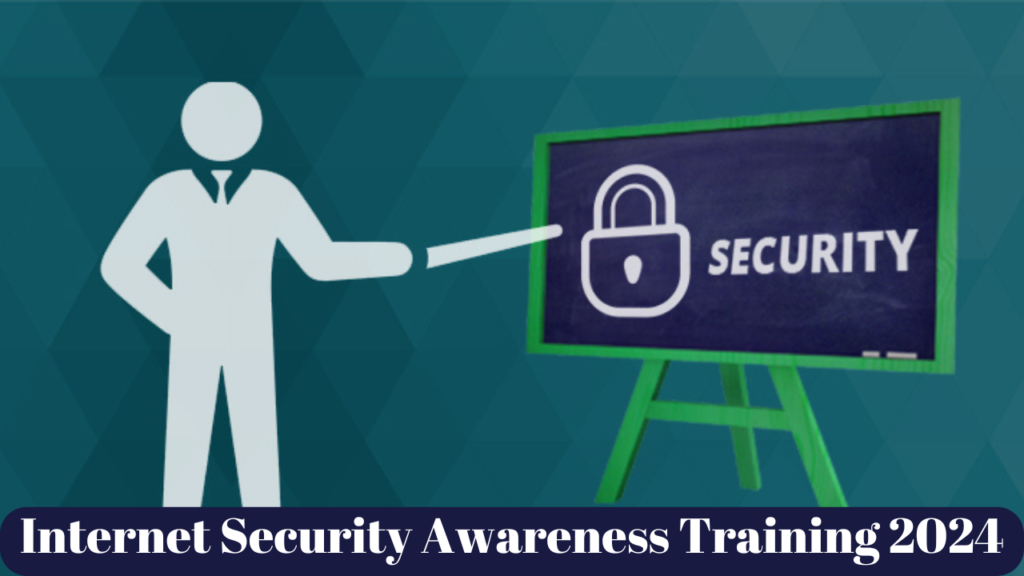Selecting the right degree for cybersecurity depends on an individual’s passions and personal objectives. Some disciplines, which can help you get a job in this area, are as follows: The most popular outcomes are a bachelor’s degree in cybersecurity or information technology, computer science. These programs give a good ground in computer systems, networks and various aspects of security.
However a degree in computer engineering is an option that offers equal recognition where the result is the construction of computer systems and hardware. If your focus is towards the technical aspects of cybersecurity like cryptographic systems and network security standards of implementation, then this degree can be of some help.
Some universities provide certain degrees that are dedicated to cybersecurity only. These programs are usually meant to help students acquire knowledge in areas such as computer forensics, IT Security and Hacking, and Cybersecurity Policies. It is possible that they can offer more specialized type of curricula, closer to the needs of the cybersecurity market.
Also, a majority of cybersecurity personnel seek certifications as extra qualifications in addition to their degree. It is also important that you get certified to show your competency in a certain specialty like CISSP or CEH will be important when you are looking to get a job in the cybersecurity field.
In conclusion, the best degree for cybersecurity will depend with your preference, the kind of job you want to secure and the kind of skills you would want to acquire. There is a need to make necessary comparisons of various programs and in relation to people’s goals in the context of cybersecurity.
Bachelor’s Degree in Cyber Security (BSCS)
These specialty courses for example include area of interest such as tools and technologies in cyberspace, cyber security intelligence, cyber defense and secure software engineering. The purpose of a BSCS program is to equip the students basic education and practical training the technical skills and education required to protect computing systems and data from cyber criminals. The roles which BSCS graduates are allowed to pursue in the field of the cybersecurity are cybersecurity analyst, network security engineer, penetration tester, security consultant, information security manager, etc.
Many universities and colleges across the world offer BSCS as a degree major where the courses are differentiated in terms of focus and the content of the courses offered. Anyone seeking to pursue a BSCS should look for the schools and programs they provide and make a comparison of the various offered courses and areas of specialization to come up with the ones that offer the subjects and focus on cybersecurity.Some topics that may be covered in BSCS programme are network security, cryptography, ethical hacking, digital forensics, risk management, and legal framework for cyber security.
It is also important that you get certified so that you are able to prove that indeed you have the skills in a particular area of specialty like CISSP or CEH will be very important when looking for a job in cybersecurity. Therefore, as we finish up the discussion, the best degree for cybersecurity largely depends with the type of job you want and also the skills you would dint wish to achieve. But it is first necessary to make certain comparisons concerning each of the various programs in relation to goals of people in the framework of cybersecurity. Objective and subject The “Bachelor’s Degree in Cyber Security” program is an academic program that offers information on cybersecurity and the understanding of theories, approaches, and tools that are applied in the mentioned field.
List of Bachelor’s Degree in Cyber Security
Here’s a list of bachelor’s degrees in cybersecurity:
- Bachelor of Science in Cybersecurity
- Bachelor of Science in Computer Science with a concentration in Cybersecurity
- Bachelor of Science in Information Technology with a focus on Cybersecurity
- Bachelor of Science in Cybersecurity Engineering
- Bachelor of Science in Digital Forensics and Cyber Analysis
- Bachelor of Science in Cyber Operations
- Bachelor of Science in Cybersecurity and Information Assurance
- Bachelor of Science in Cybersecurity Management and Policy
- Bachelor of Science in Network Security and Cyber Defense
- Bachelor of Science in Information Systems Security
The following is just a list of some of them and it should be understood that there could be certain differences with regard to the titles or the specialties in different universities. Each program should be studied to determine which of the programs fits the learner’s interests and career path in the cybersecurity area.

How can I join cyber security after 12th?
After 12th grade there are several ways you can pursue a career in cybersecurity.
| Bachelor’s Degree | Most of the stidents pursue a bachelor’s degree in cybersecurity, computer science, information technology. Remember to search for the universities or colleges that offer degrees in cybersecurity. These programs provides knowledge to students about basic computer science, computer networks, and computer security knowledge. |
| Certifications | You can also begin by gaining some certifications in cybersecurity since most of them are offered in the industry. Courses and certifications such as CompTIA Security +, Certified Ethical Hacker or Cisco Certified CyberOps associate can assist you with the knowledge and valuable skills in Cyber Security and make it easier for you to be hired. |
| Online Courses and Bootcamps | There are many online platforms that provide cybersecurity courses and they are boot camps meant for fresher’s. Studying these courses, one will obtain different knowledge and skills in cybersecurity, starting from fundamental and up to the professional level. Sites like Coursera, Udemy, and Cybrary hosts courses by different professional trainers though the courses are self-paced. |
| Internships and Entry-Level Jobs | They can apply for internships or employment to IT or cybersecurity-related positions at the entry-level. These opportunities help you to build up your practical experience that requires knowledge in the real setting. Consequently, start your search to find internships or job post opportunities with, firms in cybersecurity, government organizations or the IT departments of firms. |
| Networking and Professional Development | Network regularly at industry conferences, training events, seminars and social meetings to establish relationships with other cybersecurity professionals. Some candidates may offer the benefit of connection with experienced cybersecurity individuals, who can act as a mentor or refer the candidate to job openings. |
Regardless of the direction, you decide to go, it is crucial to keep abreast with the emerging trends in cybersecurity and on each experience try and improve oneself through lessons learnt and practical practice.
Is Cyber Security Degree hard to pass ?
To answer the commonly asked question ‘is cybersecurity degree hard,’ we can only conclude that this remains dependent on specific factors, such as comprehending prior knowledge, personal aptitude, and individual commitment to enhanced insight. Here are some considerations:
| Technical Complexity | Considering it to be the pursuit of expertise in subjects that are intricate in nature and are encompassed within computer science domain such as networking, coding, cryptography and security measures. According to some of the reviewers, if this individual was strong in mathematics, logic and computer science he may not find it very hard to understand the various postulates highlighted. |
| Continuous Learning | It is imperative to note that the field of cybersecurity is dynamic given the current unprecedented technological innovations that are characteristic of the modern society. It means that the specialists working in the field of cybersecurity have to become lifelong learners to be familiar with the advanced trends and standards. |
| Problem-Solving Skills | It is imperative to note that the field of cybersecurity is dynamic given the current unprecedented technological innovations that are characteristic of the modern society. It means that the specialists working in the field of cybersecurity have to become lifelong learners to be familiar with the advanced trends and standards. |
| Hands-On Experience | Theoretical knowledge alone cannot suffice when it comes to Cybersecurity, practical experience is a valuable asset. A number of degree programs do include lab, project and internships to expose to the real life use of cybersecurity tools and methods. |
| Dedication and Persistence | As in many fields, perseverance and many efforts are more or less required in cybersecurity as well. In the process of performing the tasks and achieving the goals of your project you may face various difficulties and challenges – sometimes even overwhelming ones – but you can always get through them if you try hard enough. |
Cybersecurity Degrees Alternatives
In case it is impossible or not worthwhile to enroll in a cybersecurity degree program, seeking certification can serve as an excellent way to establish your career in cybersecurity. Here are some widely recognized certifications that can demonstrate your expertise and proficiency in cybersecurity:Here are some widely recognized
Certifications that can demonstrate your expertise and proficiency in cybersecurity:
| CompTIA Security+ | The initial certification is a very elementary one that is aimed at exposing the individual to mostly generalized concepts in cybersecurity, including concepts like network security, threats, vulnerabilities, encryption, and risk assessment. They say it is a fact that is well known and that it is even an entry level certification for other cybersecurity certifications. |
| Certified Ethical Hacker (CEH) | CEH certification shows that one is capable of working as a hacker in his mind and approach, as well as shows you, or your employer, the areas where the leaks are in computer systems and networks. Some of these fields include penetration testing, ethical hacking, and security assessment and all these fields aid in determining the security strength of a firm. |
| Certified Information Systems Security Professional (CISSP) | CISSP is a world accreditation which can only be procured by those who possess several years of professional practice mainly in the computer security sector. This field includes areas of security like security and risk, Security of assets, Security for information using cryptology, and the part played by architecture in Security etc. |
| Certified Information Security Manager (CISM) | CISM is aimed at candidate who have the responsibility for the implementation, development and deployment of security systems or security policies in organizations. By specialization, it may involve governance, risk, response, and security program specializations. |
| Certified Information Systems Auditor (CISA) | CISA certification is best suited to those who partake in the process of auditing, controlling, and guaranteeing the effectiveness of both information systems and cybersecurity practices. The steps deal with information systems auditing standards, guidelines, and checklist of best practices in protecting and controlling information systems. |
| GIAC Security Essentials (GSEC) | GSEC certification helps to check the comprehensiveness of practical knowledge regarding information security proficiencies and their applications within various domains based on networks, handling incidents, using cryptography and implementing access controls. |
| Cisco Certified CyberOps Associate | This specialization is in the field of cybersecurity operations majoring in security analytics, incident handling, threat identification, and analysis using Cisco systems and systems. |
| Offensive Security Certified Professional (OSCP): | Essential qualifications of OSCP certification are for the candidates who are interested in continuing career in offensive security or penetration testing. This they say, can only be achieved by passing a very rigorous exam that tests one’s faculty in exploiting weakness and gain control of systems in a legal manner. |
These certifications provide an affordable and convenient means of developing vital skills and obtaining vital recognition in the field of cybersecurity, which is why it may be appealing to many potential cybersecurity workers instead of seeking a cybersecurity degree.
FAQs:
1. Is there a way to get a cyber security degree for free?
Sadly, there is not much choices when it comes to fully free cyber security degree programs. Still, some of the universities state their willingness to offer certain scholarships or financial aid to students; and there are numerous online resources and courses that contain much useful information and which are free of charge.
2. Are there reputable online cyber security degree programs?
Yes, the list of universities that offer accredited online cyber security degree program includes several institutions. These programs afford the freedom that can be afforded from a distance education program while giving the knowledge and skills needed to work as a cyber security professional.
3. Can I pursue a cyber security degree in India?
And yes many universities and Institutions of India are offering cyber security at undergraduate as well as postgraduate level. Such programs include; these programs include different areas of cyber security, and the course makes provisions for students to incline towards certain depths of it.
4. What job opportunities are available with a cyber security degree?
Some of the job prospects one can pursue with an undergraduate degree in cyber security is as a cyber security analyst, network security engineer, ethical hacker, security consultant and information security manager among others.
5. What courses are included in a cyber security degree program?
Cyber security degree programs include courses such as core systems, datasets, cryptography, ethical hacking, recreation of crime, security risk, security policies and cybercrimes regulation.
6. What is the salary potential for individuals with a cyber security degree?
Based on experience, location, and industry, cyber security professional salary differs depending on the roles enforced by the specific companies. However, employment opportunity in this field is well paying with opportunities for career growth and better paying job as the individual mastering the profession with increasing experience.








